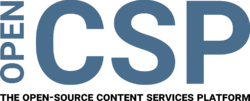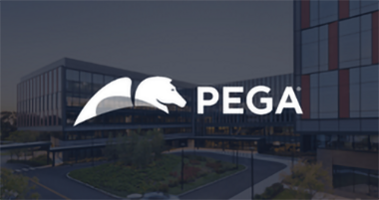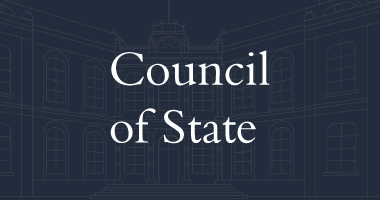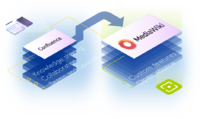The open source platform everybody knows
MediaWikiThe high quality software that the Wikipedias and many other knowledge platforms run on. MediaWiki is a free and open-source software platform designed for creating and managing wikis - websites that can be edited by anyone. It is best known as the driving force behind Wikipedia, but is also used by countless other organizations and individuals around the world for a wide range of knowledge projects. MediaWiki is a powerful and flexible platform that powers some of the most visited websites in the world. Thanks to its open-source nature and active community, it continues to evolve and meet the needs of a wide range of users. For those looking to build a collaborative, knowledge-driven website, MediaWiki offers a proven and reliable solution. 
|
|
What is MediaWiki?MediaWiki is the high-quality software that the Wikipedias and many other websites run on. It is the collaboration and information platform that Wikibase Solutions uses as the basis for Wikibase products. MediaWiki has been recognized over the years as a reliable platform for wiki-based websites, but as with any software, reliability depends on several factors. MediaWiki is the software behind Wikipedia, one of the largest and most visited websites in the world. This in itself proves the software's ability to handle large amounts of information and traffic. As open-source software, MediaWiki has the advantage of an active and dedicated community. This means that bugs and security issues are often identified and resolved quickly. While no system is completely immune to threats, MediaWiki has several built-in security features. The software provides protection against common web attacks, such as cross-site scripting and SQL injection. • Categories: Allows articles to be organized and classified. • Templates: Standard formats that can be used on multiple pages, promoting consistency and efficiency. • Extensions: There are hundreds of extensions available for MediaWiki, ranging from security tools to visualization tools, that add functionality and customization. Technical Aspects: MediaWiki is primarily written in PHP and uses a database such as MySQL to store content and metadata. It has a modular architecture, meaning additional functionality can be added through extensions, without changing the core code of the software. Uses and Applications: Although MediaWiki is made famous by Wikipedia, it has many other applications. Companies use it to build internal knowledge bases, universities for educational projects, and individuals for personal and community projects. |
|
Why did Wikibase Solutions choose MediaWiki?In 2012 Wikibase consciously chose MediaWiki because it offers the highest reliability, flexibility and security. Just as important, MediaWiki was chosen because it was open source and supported by a strong organization and community. We are delighted that nowadays (March 2026) the MediaWiki platform is in the best shape and continuously improved by a vibrant community. |
What is Wikibase Solutions' contribution to MediaWiki?We believe that Open CSP is our major contribution to MediaWiki. Open CSP is the open-source framework that makes MediaWiki Enterprise ready. It is a bundle of extensions and application content. Open CSP is a framework that provides standards and tools for a marketplace of off-the-shelf products and solutions. More information on Open CSP can be found on the open-csp.org website. |
 |
|
Benefits of MediaWikiThe most important feature of any wiki, including those on the MediaWiki platform, is the ability for users to create and edit content. Every change to an article or page is logged, making it easy to go back to previous versions or track changes.
Open Source: MediaWiki is free and open-source software, which means you can use, modify and distribute it freely. This makes it accessible and adaptable to specific needs. Extensive Documentation: Thanks to its huge community and use in large projects like Wikipedia, there is a wealth of guides, tutorials and forums available to help users. Modular and Extensible: There are hundreds of extensions available for MediaWiki, allowing you to add additional functionality ranging from advanced search functions to integration with other tools. Versatility: MediaWiki can be used for a wide range of applications, from large public wikis like Wikipedia to private corporate knowledge bases. Version control: Every edit or change is recorded, making it easy to go back to previous versions of a page. This provides transparency and makes it easier to correct errors or vandalism. Multi-Language Support: MediaWiki supports multiple languages, both in the user interface and in the content, making it ideal for international projects. Security Features: While no system is infallible, MediaWiki offers several security features and extensions to protect content and user data. Easy to Use: Although there may be a learning curve, the WYSIWYG (What You See Is What You Get) editor makes editing easier for users without technical knowledge. Active Community: MediaWiki has a large and active community of developers and users. This means the software is updated regularly, and help and support is always available. Scalability: MediaWiki is designed to handle large amounts of content and traffic, as seen with Wikipedia, one of the most visited websites in the world.
|
Applications of MediaWikiHere are some scenarios that MediaWiki can be used for: Setting up an Internal Knowledge Base: For companies or organizations that want a central place to document procedures, policies, and other internal information. Setting up a Community Wiki: For communities or groups that want a collaborative environment to share knowledge and collaborate on content. Educational Platform: Teachers or educational institutions can use MediaWiki to share teaching materials, publish assignments, and collaborate with students. Documentation for Software or Products: Companies can use MediaWiki to host manuals, FAQs, and technical documentation. Research projects: Researchers can document results, sources, and discussions on a central platform. |
 |
Get ISO 27001 certifiedThe ISO 27001 certificate helps us and our customers reduce information security risks and prevent incidents. In this way we protect the reputation of our company. With the ISO 27001 certificate we comply with laws and regulations regarding information security. It is the way to demonstrate that we have a good management system for information security. We have consciously opted for the updated version ISO 27001:2022, which replaces the old ISO 27001:2013 standard. The ISMS (Information Security Management System) that we use for information security was built by ourselves and is also available for other organizations. |
|
|







